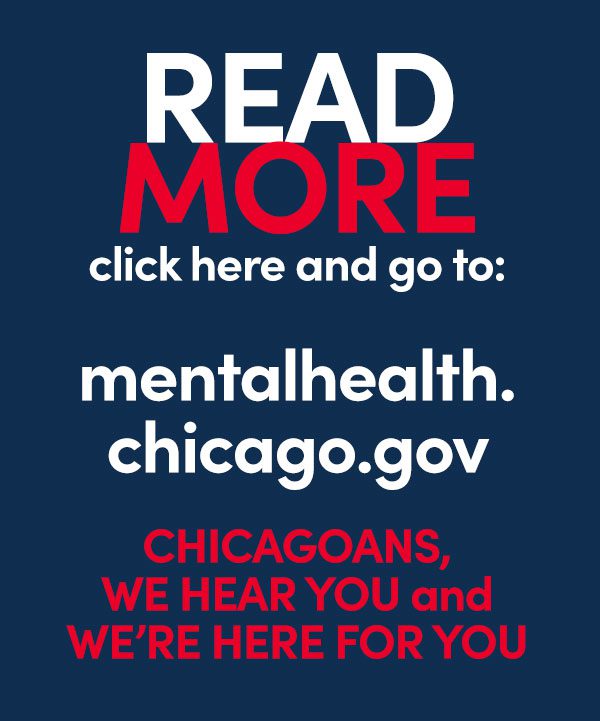
MAYOR LIGHTFOOT AND THE CHICAGO DEPARTMENT OF PUBLIC HEALTH ANNOUNCE EXPANSION OF CITYWIDE MENTAL HEALTH NETWORK
Mental health services for Chicagoans regardless of insurance, immigration status, or ability to pay.
What you should know:
Mayor Lori E. Lightfoot and the Chicago Department of Public Health (CDPH) announced today that the City of Chicago is awarding $3.1 million in new grants to expand City-funded outpatient mental health services across Chicago. A total of 12 new providers will join 38 existing providers in the City’s Trauma-Informed Centers of Care (TICC) network. Together this represents $11.5 million of funding to the network annually.
Providers include Community Mental Health Centers (CMHCs), Federally Qualified Health Centers (FQHCs), and Community-Based Organizations (CBOs), along with CDPH’s directly operated mental health centers. This clinical network provides a range of behavioral health services to adults, youth, and families in their communities. Organizations in the TICC network provide access to high-quality, trauma-informed services for all Chicagoans regardless of health insurance, immigration status, or ability to pay.

Framework for Mental Health Equity Action Plan for Chicago
In 2019, Mayor Lightfoot released the Framework for Mental Health Equity, a detailed action plan for building a comprehensive, integrated network of mental health services across every neighborhood in Chicago. This transformative approach includes four pillars:
“Serving the mental health needs of our communities is an important step forward to creating a more equitable, safe city,” said Mayor Lightfoot. “With this expansion of trusted community clinics, we are substantially increasing the reach of much-needed services across our entire city. I look forward to continued investments in the mental and physical health of our residents with a focus on equity.”
• Expand publicly-funded outpatient mental health clinical services in every neighborhood
• Bring care out of clinics: coordinate trauma-informed services for persons impacted by violence
• Bring care out of clinics: create and expand crisis prevention and response programs for people living with serious mental illness and substance use disorders
• Build and support a coordinated mental health service system across the city
The Framework was accompanied by a seven-fold increase in funding for mental health services, from $12 million in 2019 to $89 million in 2022. As a result, an estimated 60,000 Chicagoans will receive behavioral health services through the City network in 2022, a 1,500% increase over the 3,651 people who received such services in 2019.
Or go to mentalhealth.chicago.gov

